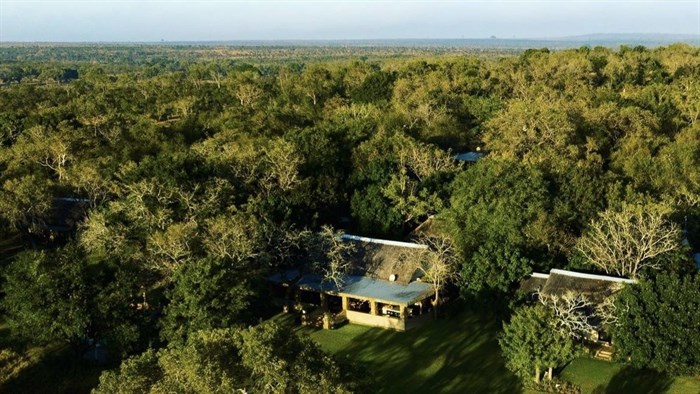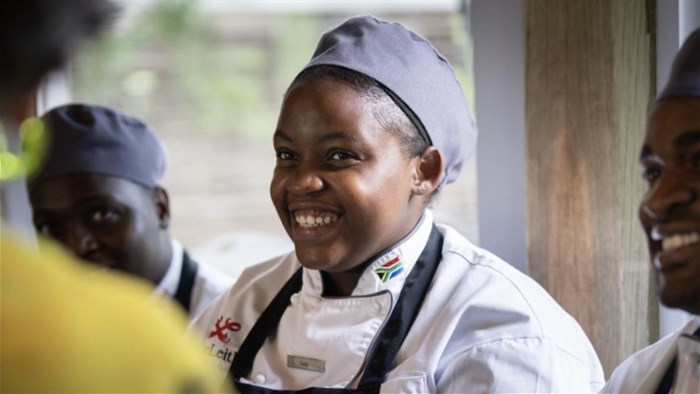
Our evening began in the kitchen of the Ginger and Lime Food Studio in Fresnaye, Cape Town, where we witnessed a skilful cooking demonstration by Andrew Nicholson, executive chef at Singita. His dish of choice was a modern take on the more traditional umngqusho (samp and beans), which we later had the opportunity to try, along with various other dishes.
We also had the chance to learn about Singita from the CEO himself, Joe Bailes; Singita opened its first property in 1993, with the aim to combine sustainability with luxury safaris. Additionally, it sought to empower the communities that surrounded its destinations. Both of these goals have been achieved through conscious decision making and programmes.
Singita has a long history of protecting the environment, starting with its first location (now known as the Sabi Sand Reserve), which was purchased almost a century ago by the grandfather of the founder Luke Bailes. It was once used as a hunting concession but it is now a nature reserve where every species is taken care of.

While providing luxury hospitality in the wilderness, the company aims to protect the surrounding ecosystems by upholding three core pillars: biodiversity, sustainability and community. Instead of only focusing on the present, it chooses to look ahead by making decisions that will ensure a fulfilling future. “Modern conservation,” says Bailes, “requires a keen focus on keeping tourism, communities and wildlife in a constructive balance - and the survival of each is crucial to the survival of the whole.”
Singita makes it a point to form connections with the local communities, believing that winning their trust is critical to the company's success. This is accomplished through customised programmes that attempt to create significant economic and social improvements in the lives of individuals.
With an emphasis on education, the group promotes learning from early development to school years by offering onsite environmental education, financial support, and digital learning in locations where these resources are unavailable. Adults are also given educational opportunities.
The company also strives to empower women and girls with initiatives like the Serengeti Girls Run. Proceeds from this four-day event are used to finance education and healthcare needs, as well as career programmes, with the aim of securing future employment.

Small and medium enterprises (SMEs) are also high on its list. In order to ensure development and income generation for them, Singita utilises these types of businesses to supply their lodges.
The Singita Community Culinary School provides young people with a professional cookery education, making it another way the group supports the surrounding communities. There are currently three schools in Africa (South Africa, Rwanda and Tanzania), each offering an internationally recognised Worldchefs accreditation. Graduates are then placed in an internship programme and are assisted with finding employment. They are also able to exchange with local and international kitchens.
Since its founding in 2007, the institution has produced 103 graduates. 92% of those graduates have found work, with 25% working for Singita. 91% of those recruited are now professional cooks, with 44% promoted to junior sous chef positions or above.

The anniversary dinner went on into the evening as we tried the meals that were prepared for us; a lovely salad with goat cheese, grilled fish, a special tofu course that was shared with me, and of course, the umngqusho.
Chef Nicholson spoke about incorporating healthier options into their guests’ diets without compromising flavour and enjoyment, believing that in order to achieve true wellness, one needs to go beyond the traditional spa treatments offered at these types of resorts. Instead, all lifestyle aspects need to be addressed, including nutrition. To take it one step further, all produce used in Singita kitchens are farm-to-table and grown sustainably.
These ideals were certainly evident in the dishes we were served. Pleasure and comfort without causing harm seems to be a running theme for the company, along with allowing its actions to speak for it.